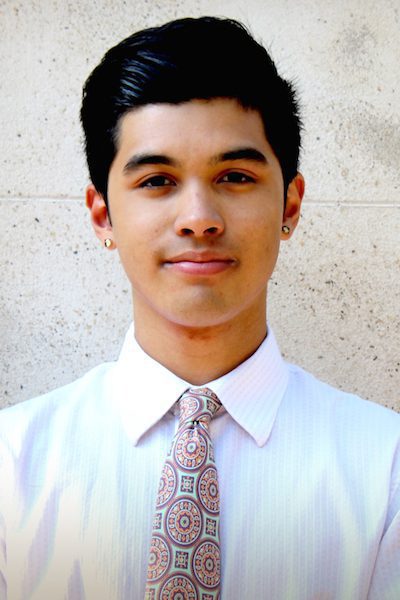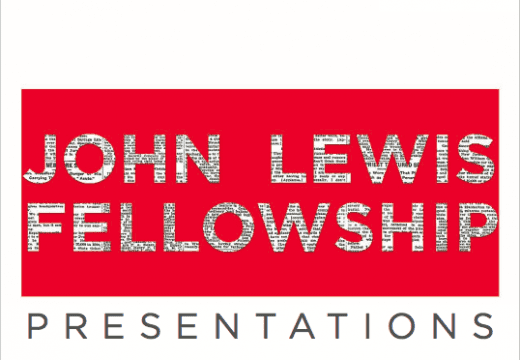Details
Article
I began this fellowship by sharing an item of significance: my guitar. When strumming those six strings, I connect with the timeless human tradition of music, but at the same time, with historical tragedy. As I play my Spanish guitar, I’m reminded of empire, conquest, and the colonial brutality exacted on both the Philippines and Puerto Rico where I trace my family roots. But I’m also reminded that music heals.
With each song I make the choice to remember; to memorialize my experience intangibly as sound which I then share with others.
Music is my form of personal healing as songwriting requires complete vulnerability with myself and the listener. Lyrics cannot be unwritten and a melody cannot be unheard, so with each song I make the choice to remember; to memorialize my experience intangibly as sound which I then share with others. Much like a tattoo, my songs remind meofwhoIwasandwhatIfelteachtimeI play them. Like tattoos, my songs are intentional, beautiful scars that remind me of how far I’ve come.
So as I journeyed across the South from Charlotte, North Carolina to Atlanta, Georgia, I dreamt up ways to leverage the power of music as an agent of social healing and social justice. I thought of starting a nonprofit music studio or record label or after-school program or pop-up concert and lecture series…or all of the above. I just wanted to use music to empower young people to raise their voices and advocate for their communities. And while this goal remains, Humanity in Action and the John Lewis Fellowship showed me the value of sankofa, which I will keep at the core of my work moving forward.
Our professors breathed life into history
From conversations with civil rights heroes and scholars such as Dr. Roselyn Pope and Dr. Jacqueline A. Rouse to recounting the stories of the very streets upon which we walked with Nasir Muhammad, this fellowship was saturated in the spirit of sankofa. We looked back to look forward. Our professors breathed life into the history and doing so helped me realize my position in a lineage of activists, revolutionaries, and my own ancestors. I found strength in knowing the hard-fought battles and sacrifices made by those who came before me and I gained wisdom from the intergenerational exchange that took place consistently throughout the program. Indeed, I learned to honor the knowledge and wisdom of my elders and I hope to revive the tradition of seeking their counsel in my work moving forward.
But sankofa was especially formative for me personally as I wasn’t taught the history of my people. In fact, I felt uncomfortable saying “my people” until now since my double- minority, Lat-Asian, raised in the South background made me feel like a misunderstood other. Outside of the black- white racial binary of the South, I felt like I had no history to call my own. However, I learned to seek out the untold stories of my ancestors and be empowered by that knowledge as we discussed the unsung heroes of the civil rights movement.
I know how disempowering it is for the people who look like you to be omitted from the history books.
We learned of Fannie Lou Hamer, Angela Davis, Sonia Sanchez, Coretta Scott King, and many other women whose contributions have been underappreciated due to their sex. We learned of Norris Herndon and Bayard Rustin whose stories have largely been erased due to their sexual orientation. Stories like these were deemed uncomfortable or inconvenient, yet uplifting these stories gave me a fuller, more complex picture of our past and prompted me to reclaim my own history and my own national heroes. Heroes like Don Pedro Albizu Campos, a Puerto Rican attorney and politician, and the leading figure in the Puerto Rican independence movement. Heroes like José Rizal, a Filipino nationalist and writer whose works inspired an anti-colonial rebellion and was among the first to articulate the goals of Philippine independence.
Even the renewed urge to know my own family’s history stems from my experience of sankofa here in Atlanta. I will leave here asking more questions about what it was like for my grandparents to immigrate to the United States. I will seek to understand my own genetic makeup and recover the stories of people movement encoded in my own DNA. But I will also help others experience the power of knowing their history. I know how disempowering it is for the people who look like you to be omitted from the history books. That’s why I was so inspired by the joint effort of Asian American and Latino leaders in Atlanta to uplift those untold stories through the interactive timeline that Ms. Helen Ho shared.
As I leave Atlanta, I walk away with a new awareness of my identity as a scholar, activist, and artist.
“So until America loves truth,” as Dr. Daniel Black said, “I’m going to write it.” I will write truth into my music. I will tell my story and my people’s story and I will encourage others to do the same. I will get my five friends and create the space for people to record their piece in our collective timeline. I’ll get my five friends and together we will walk the streets of our city and remember the names and the places where history was made so that we might understand that the baton is now in our hands.
Now as I leave Atlanta, I walk away with a new awareness of my identity as a scholar, activist, and artist. I am empowered by the knowledge of those who came before me and now I seek to empower others so that together, we might achieve a more equitable world.


